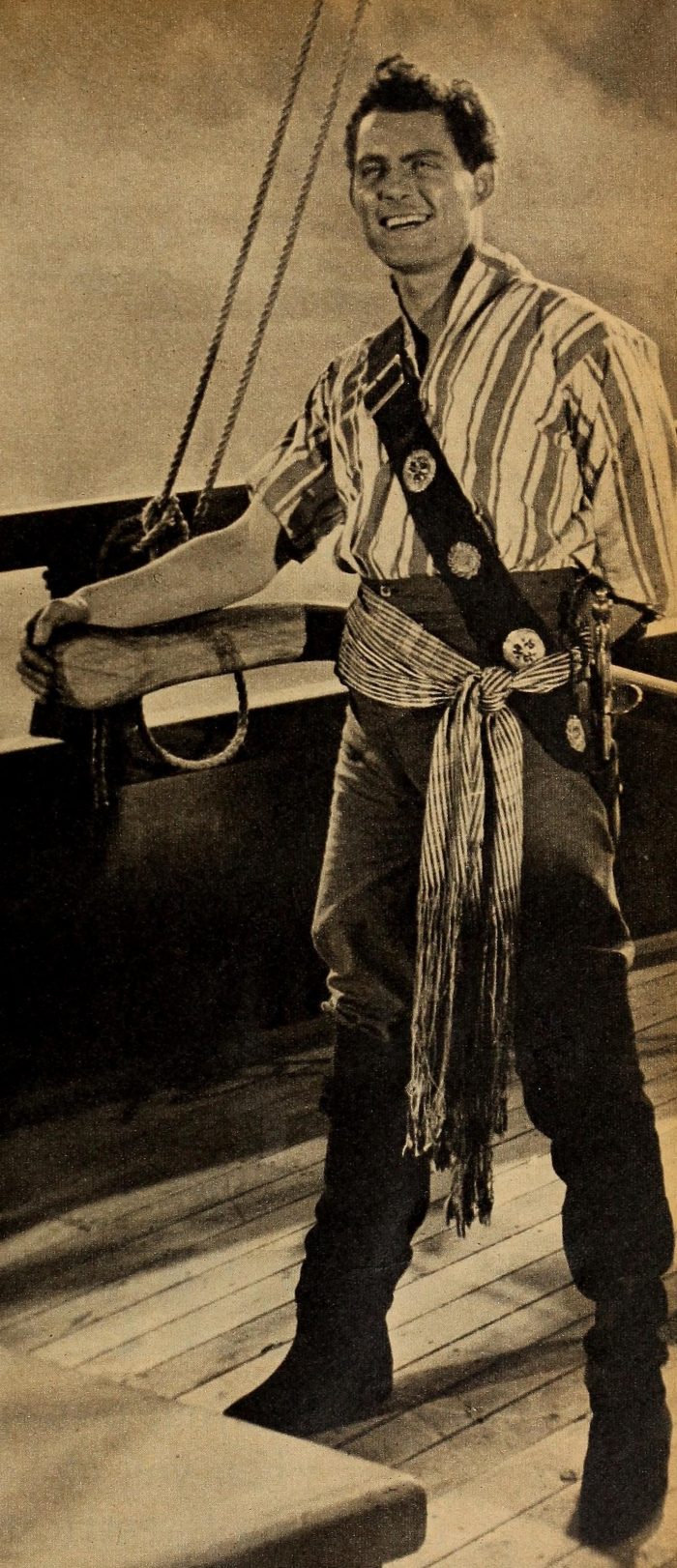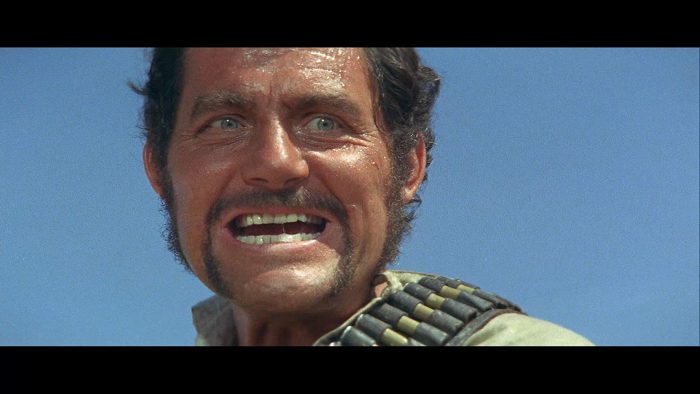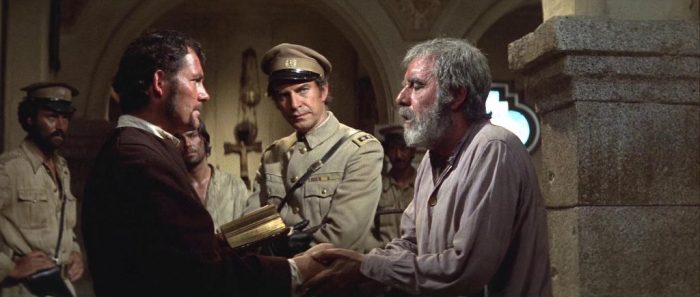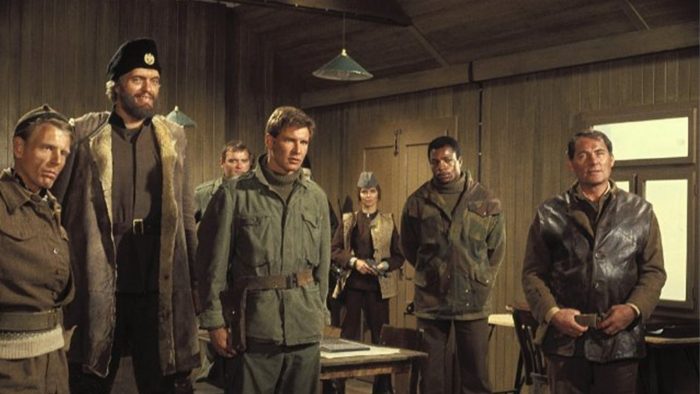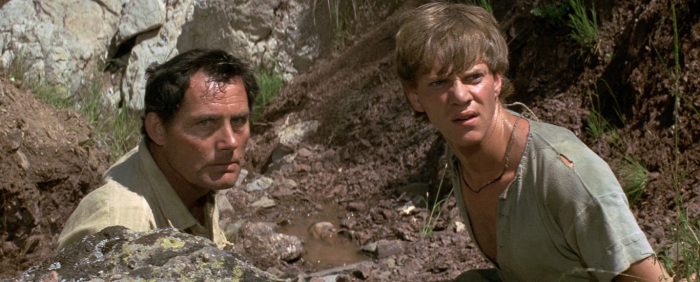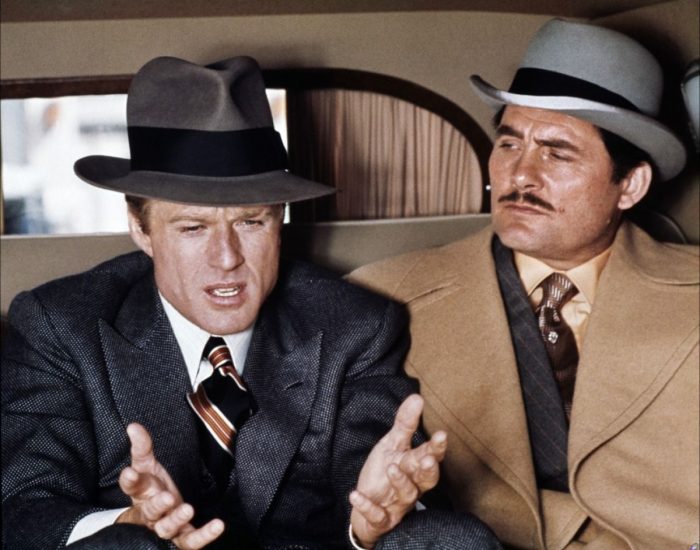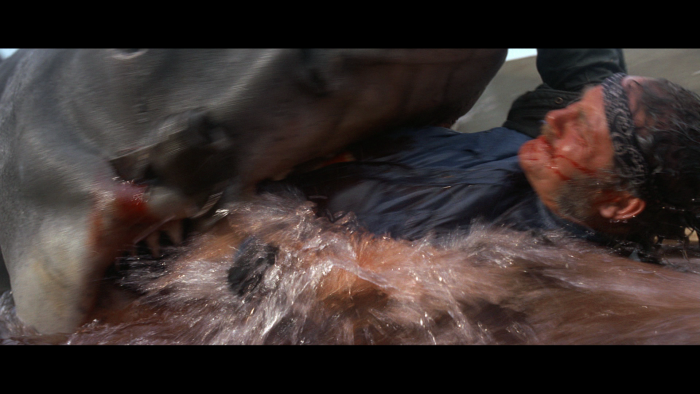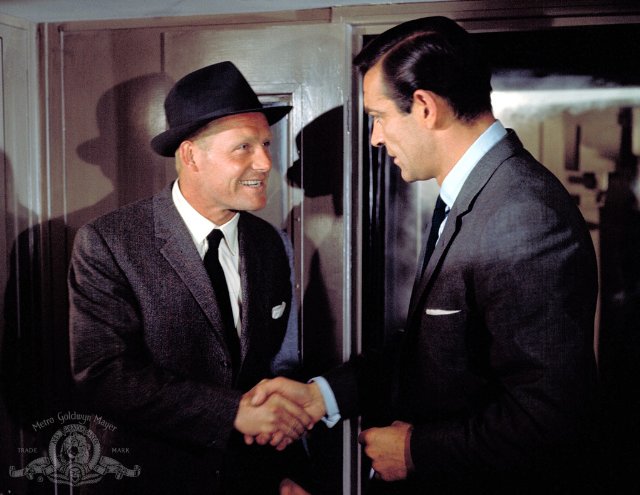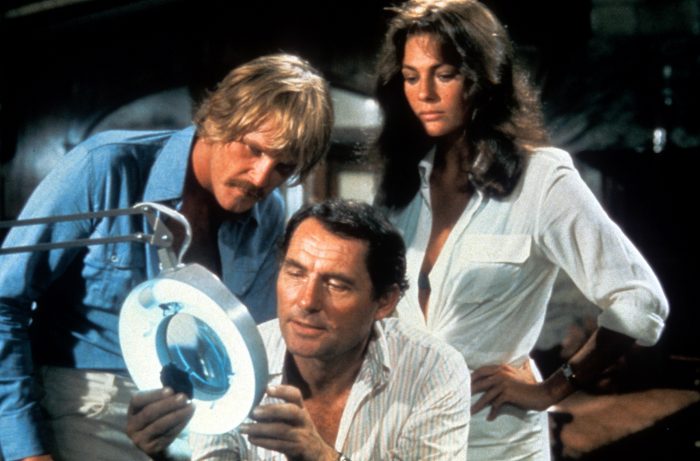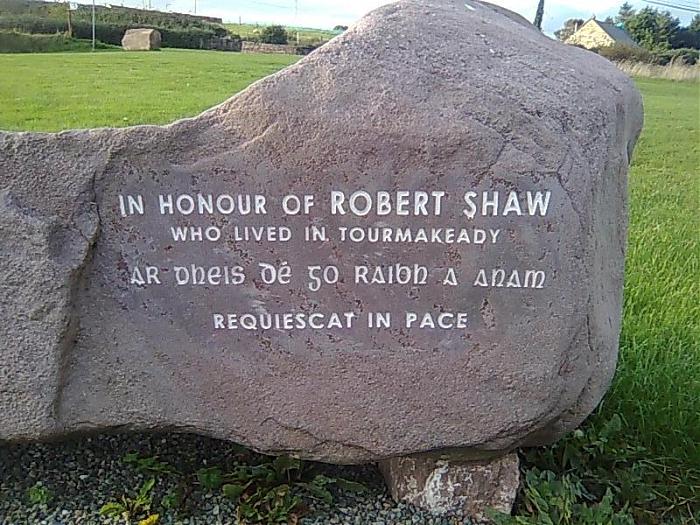Robert Archibald Shaw
Born August 9th, 1927, Farewelled August 28th, 1978
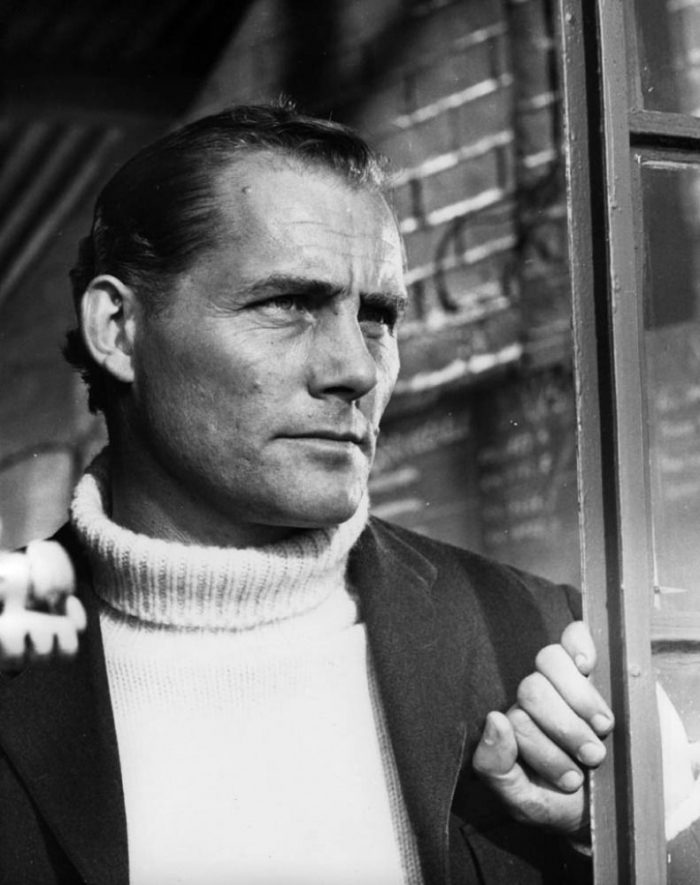
Shaw once told an interviewer:
“When they write my obituary I would like them to say, ‘He was an author who wrote one book that will last and he was also a remarkable actor.'”
Quoted in his New York Times obituary, August 29, 1978.
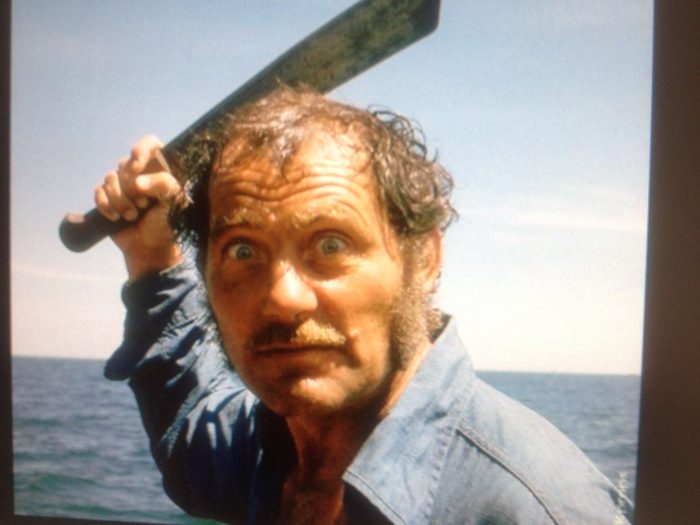
Here’s The Rundown:
- First stage acting debut, Caro William (1951)
- First acting debut, The Dambusters (1955)
- Was to start filming a movie about British double agent Kim Philby at the time of his death
- Besides being an actor, he was also a writer! He published five novels, several plays and also adapted one of his works into a screenplay that starred Sir Alec Guinness, Situation Hopeless… But Not Serious (1965)
- Hated an adaptation of one of his novels (The Man In The Glass Booth), that he had his name removed from the credits, but once seeing the completed film, changed his mind but was too late to have his name added back
- A lot of Shaw’s dialogue in Jaws was improvised, he also rewrote the USS Indianapolis incident which was initially written by Howard Sackler and John Milius
- Shaw would drink between takes while shooting Jaws, he was so drunk that the footage for the monologue about the Indianapolis was unusable. The scene was shot again the next day in one take.
- Has a pub named after him in Westhoughton, Greater Manchester
- Sebastian Shaw in the X-Men comics is named after him
- Married 3 times, fathered 8 children and adopted 2 others from his previous marriages
- Nemesis to Sean Connery in From Russia With Love (1963) and Robin And Marian (1976)
- One Oscar nomination (Best Supporting Actor) – A Man For All Seasons (1966)
Hardstyle Beginnings
Born in Westhoughton, Lancashire, England, a coal, cotton-spinning and textile manufacturing town.
His father, Doctor Thomas Archibald Shaw was an alcoholic and manic-depressive that committed suicide when Robert was 12. His mother Doreen Nora was a nurse born in Swaziland.
Per IMDB
As a boy, he attended school in Truro, Cornwall and was quite an athlete, competing in rugby, squash and track events but turned down an offer for a scholarship at 17 to go to London, with further education in Cambridge, as he did not want a career in medicine but, luckily for the rest of us, in acting.
He was also inspired by one of the schoolmasters, Cyril Wilkes, who got him to read just about everything, including all of the classics. Wilkes would take three or four of the boys to London to see plays. The first play Robert would ever see was Hamlet in 1944 with Sir John Gielgud at the Haymarket. Robert went to the Royal Academy of Dramatic Arts with a £1,000 inheritance from his grandmother.
In 1948, after two years at the Academy, Robert made his stage debut at the Shakespeare Memorial Theatre in Stratford-upon-Avon, where he was directed by Sir Arthur John Gielgud. Gielgud said to Shaw:
“I do admire you and think you’ve got a lot of ability, and I’d like to help you, but you make me so nervous.”
Onto The Screen
Robert then jumped to the small screen in various small parts; he got his first big break as Captain Dan Tempest in the series The Buccaneers which ran from 1956 to 1957. After that, he mostly had guest roles in other shows and small roles in the odd film here and there.
1963’s From Russia With Love was what really got him noticed, playing Donald “Red” Grant, a SPECTRE agent trained to assassinate James Bond in retaliation for the death of Dr. No. The film was a box office smash ensuring many more Bond films to be produced in the future.
Robert appeared in more feature films from then on, only taking six more TV roles between 1964-1974. Noteworthy movie roles included Battle Of The Bulge (1965) and Academy Award-winning A Man For All Seasons (1966) where he played King Henry VIII.
1973 was another highlight in his career, getting third billing behind Robert Redford and Paul Newman in The Sting, another smash hit earning $159 million at the box office.
This and his role in The Taking Of Pelham One Two Three 1974 probably would have been the pinnacle of his career until he took on a role as a crusty seaman under a relatively unknown director named Steven Spielberg in a small indy flick some of you may recall, Jaws.
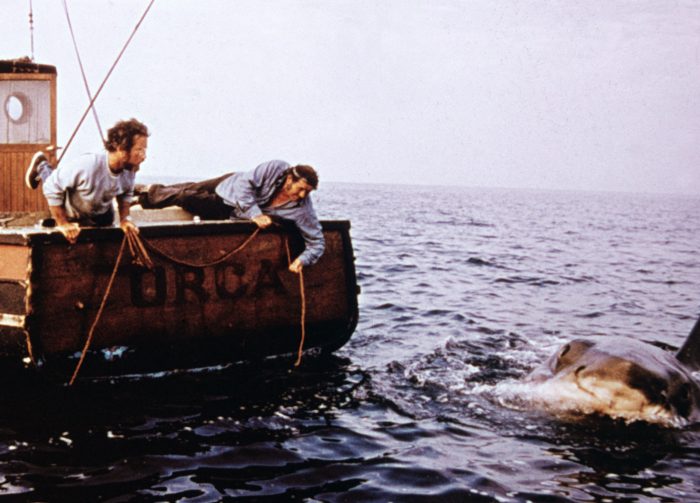
Jaws And The 70s
Apparently, he was unsure about taking the role, he wasn’t impressed by the script, didn’t know who the director was and disliked the name Jaws.
It, of course, went on to be the biggest film of all time at the time and made Shaw a superstar. Funny thing, due to some tax issues, he never made any money from that film.
He also became a recluse during this time as his second wife Mary Ure had died of a barbiturate overdose in April 1975.
He became quite busy after that, with starring roles in Diamonds (1975), Robin And Marian (1976), Swashbuckler (1976) and thriller Black Sunday (1977).
Due to the overwhelming success of Jaws, another Peter Benchley novel was developed for the big screen and this time Robert was the star in 1977’s The Deep, the highest grossing film of that year and Shaw’s biggest payday $650,000 plus percentage points. He signed on the project before even reading the script.
He was quoted as saying:
“This is the first time in my career that I’ve committed myself to a movie before reading the script. So why this time? Just instinct. This production has terrific potential. It has smelled like a winner from the beginning.”
His career and personal life were on the upswing, he had remarried for the third and final time to Virginia Jansen in 1976.
He was quoted in 1977:
“I’m the happiest I’ve been in a long time. I have my new marriage. I have my new baby, my tenth child. I don’t have to work in third-rate movies anymore, and I’m in great physical shape.”
His alcoholism finally caught up to him, during his last film, Avalanche Express, he was unable to deliver his final lines. Robert Tietty and Rich Little were used to dubbing lines for Shaw.
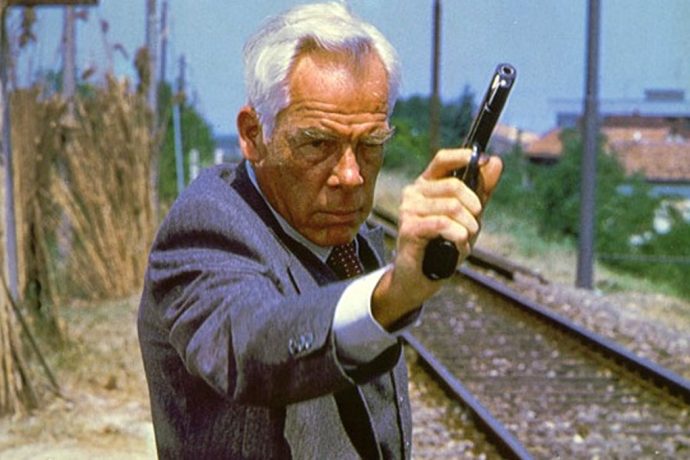
It was reported that 90% of his role was completed before he took a break. The director Mark Robson had died during post-production in June 1978.
On August 28th, 1978, Robert was in Ireland driving to his cottage with his wife and youngest son after playing a round of golf with some friends. He had experienced some chest pains during the game, and again on the way home.
He stopped the car close to his cottage, telling his wife that he was going to try to walk off the pain in his chest and collapsed on the side of the road after several steps.
His wife then ran to the cottage to call for help. An ambulance soon arrived but he was announced dead on arrival at the hospital due to a massive coronary attack.
He was cremated and his ashes scattered near his home in Tourmakeady, Ireland.

We’ll give the last words to his wife, Virginia:
“He was a wonderful person. He was fun, generous, naughty, drank too much and loved his children. He just wanted to be himself. He didn’t like the razzmatazz of Hollywood. He wanted real life. Tourmakeady gave him that.”

